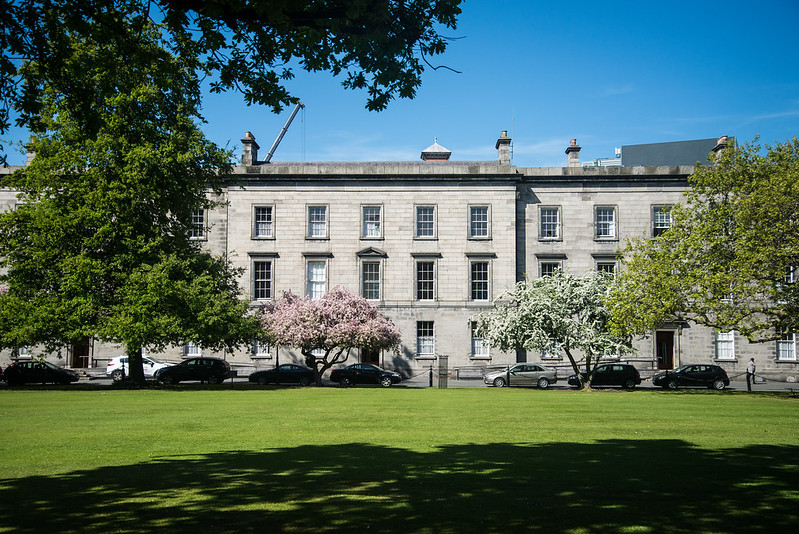A biodiversity audit of Trinity has recommended that the campus become a “living lab” with the goal of utilising “the full extent of the built and natural habitats across all Trinity’s estate”.
The campus-wide study “encompassing the whole of Trinity’s operations” has recommended the development of a biodiversity strategy as well as the employment of a full-time Biodiversity Officer who would oversee its rollout.
The pilot study, which ran from May to August of this year, worked to create baselines of species that can be used to compare future sampling of Trinity’s ecology. The audit also served to identify areas that will require additional funding to investigate fully.
Researchers mapped water habitats, trees, horticultural species as well as some fungi within the main campus. Horticultural species were also mapped by habitat type.
Preliminary ecological surveys created baseline numbers for some invertebrates. One inventory revealed the existence of 32 species of moths on campus.
The report also calls for College to construct a central repository of data relating to biodiversity and to integrate this data into Natural Capital Accounts for Trinity, so that changes in biodiversity can be tracked.
Professor Jane Stout of Trinity’s School of Natural Sciences initiated the study. In a press statement, she said: “This report highlights that there is great enthusiasm and willingness from staff and students to engage in biodiversity issues, but limited knowledge and awareness of biodiversity and its contribution to a healthy Trinity, city and planet.”
“Furthermore”, she said, “the report outlines that Trinity has hidden biodiversity, and emphasises that revealing and conserving it presents an opportunity for engagement, education and research – but there are skills and funding gaps that need addressing”.
Newly appointed Vice-President for Biodiversity and Climate Professor Yvonne Buckley said: “We rely on biodiversity for survival, physical and mental health, to support economic activity and to provide us with critical ecosystem services like clean water and climate regulation.”
“Biodiversity can be found everywhere, and by noticing it and taking steps to protect, rehabilitate and restore nature in our homes, workplaces, the wider countryside and oceans we are creating a better future for nature and people”, she said.
“This report outlines what habitats and species we currently have on our city-centre campus and the great potential to enhance biodiversity across all of our locations with benefits for all of us.”
Funding for the audit was provided by the Provost’s Sustainability Fund, the Botany Discipline, the UNI-ECO Green Challenges project as well as a philanthropic donation.







